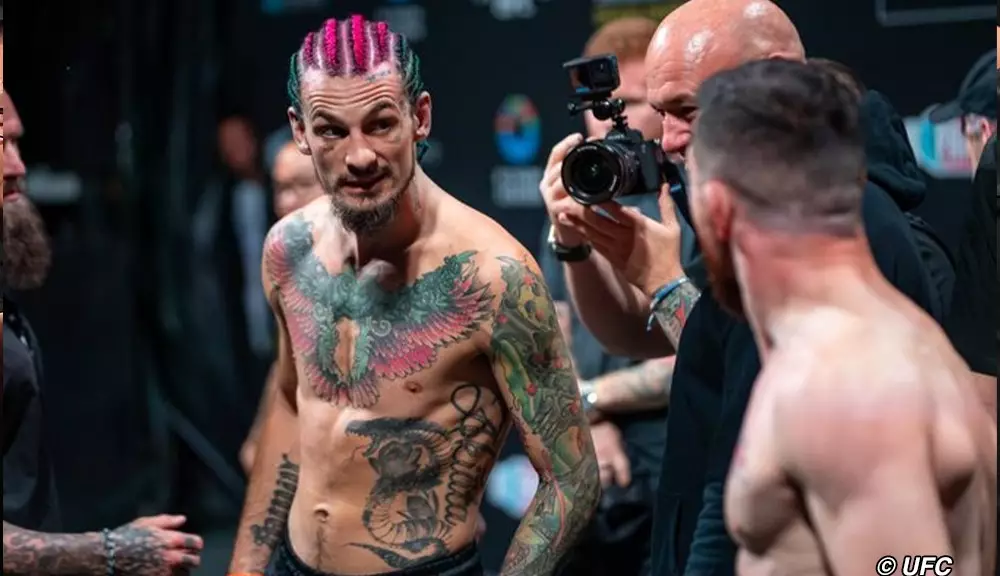In the high-octane world of UFC, fighters face challenges that extend far beyond the octagon. The bantamweight division, known for its remarkable talent and unpredictable matchups, is set for a pivotal confrontation as Sean O’Malley prepares to rematch Merab Dvalishvili on June 7 at UFC 316. This bout, taking place at the Prudential Center in Newark, New Jersey, could either solidify O’Malley’s place among the elite or plunge him deeper into a pit of uncertainty following his previous loss to Dvalishvili back at UFC 306.
The Specter of Previous Defeat
Behind O’Malley’s vibrant personality and explosive fighting style lies a shadow: his last encounter with Dvalishvili, which ended in an uninspiring unanimous decision loss. Former fighter Ben Askren raises a poignant point regarding the decision to rematch so quickly. He argues that an immediate rematch, replete with the potential for further defeat, could jeopardize O’Malley’s marketability. He believes that if O’Malley falls short again, the narrative will shift dramatically, questioning whether he can ever reclaim his title against Dvalishvili.
Askren’s concerns underscore an essential insight into the psychology of fight promotion: momentum is critical. Wouldn’t it make more sense for O’Malley to rebuild his image by taking on less formidable opponents—those he could confidently dispatch? Given his explosive striking capabilities, a well-timed victory would not only revive his standing in the division but also rekindle interest among fans, building toward a future title showdown brimming with anticipation.
Recovery and Strategy
Interestingly, O’Malley has undergone significant rehabilitation following a torn labrum repair on his hip, a critical injury that could potentially alter his performance. The time taken for recovery could have served not just for physical healing but also for tactical reflection. However, Askren emphasizes the need for O’Malley to improve his wrestling game, suggesting that acquiring solid grappling skills could better prepare him for the relentless grappling style exhibited by Dvalishvili.
While O’Malley certainly possesses dazzling striking skills and knockout power, the need to round out his skill set is imperative against formidable grapplers. Askren’s perspective suggests that opportunities for improvement exist, and could have been better utilized through matchups against lower-ranked fighters to hone those skills without the immediate pressure of a title rematch.
The Risk-Reward Dilemma
O’Malley’s decision to face Dvalishvili again raises an essential question: is it worth the risk? Combat sports are fickle; even a single loss can derail a fighter’s career for an extended period. While O’Malley has bolstered his image with flair and charisma, the potential consequences of yet another defeat might complicate his trajectory. Fans and analysts alike are questioning the logic behind diving straight back into the fray with such high stakes.
This climate of uncertainty fosters a broader debate in the sport about the right strategy for fighters aiming to reclaim or retain titles. O’Malley’s gamble encapsulates the tension between ambition and caution, ultimately igniting a compelling narrative that will keep fans on the edge of their seats.

